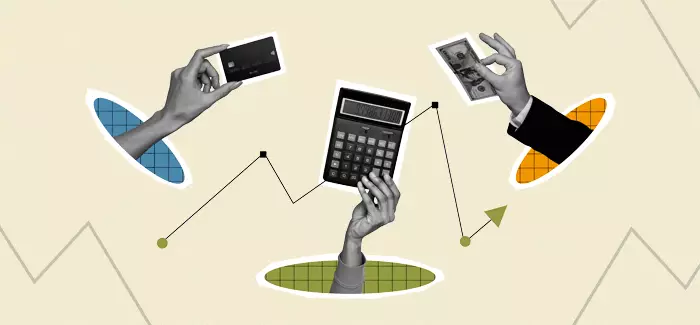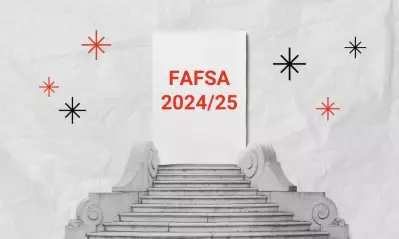Managing credit card debt and fostering good credit habits

Written by Michael Feder

Reviewed by Chris Conway, Director of Financial Education Initiatives and Repayment Management

A credit card can offer many benefits by expanding your purchasing power. However, if you aren’t careful, credit card debt can quickly spiral into something unmanageable and overwhelming. This can affect your financial stability in several ways, from negatively impacting your credit score (and subsequently limiting your options down the road for loans and purchases) to costing you more over time through interest payments.
So, what do you do if you find yourself with some (or a lot) of credit card debt? Take action! You can implement several strategies to help you build good credit habits while managing your debt effectively. You just have to know where to begin.
Benefits of a credit cardÂ
When used responsibly, credit cards can have several benefits including:
- They help you build credit: Payment history and utilization are the top two factors in credit score calculation. Credit card usage allows you to build in both areas. Paying your bill on time each month and consistently keeping your balances low (below 30% of the credit limit) can help build a positive credit profile, which can potentially lead to better financial opportunities down the road. If you have no credit history, it can be difficult to find lenders willing to extend you a line of credit.
- They offer rewards and security: Some cards offer perks like cash back, points or airline miles. Credit cards also typically offer a variety of protections against fraud, loss or theft, travel and even unemployment.
- They’re good backup for emergencies: While it’s preferable to have an emergency fund squirreled away, credit cards can be a good resource for managing unexpected expenses.
The costs of credit cards: Interest and fees
Understanding the potential costs of credit cards is critical. The annual percentage rate (APR) is the total cost of borrowing on a credit card, including fees.
The interest rate, however, is the cost of borrowing money. This is what you pay in addition to your purchase if your statement balance is not paid in full on the due date. Interest is calculated based on a percentage of the loan (credit card balance).
In comparison, APR on credit cards has higher rates compared to mortgage, auto and student loans. This is because mortgage and car loans typically have lower interest rates due to their longer-term installment debt with collateral.
Paying attention to the APR when comparing credit cards can give you better insight when it comes to understanding the potentially high costs of credit card usage. Always read the fine print! Minimum is defined as “the least or smallest amount or quantity possible.” Making the minimum payments on your credit card bills sounds good in theory but can cost you hundreds and even thousands of dollars over time. Always aim to pay off your statement balance in full each month to avoid interest charges.
How to build a healthy credit score
A credit score is a numerical rating used to predict how likely a person is to pay their debts back on time. In essence, it’s a representation of your financial reputation. The score is generated based on the information listed on your credit report. Not all creditors or bills will reflect on your credit report, but most lines of credit will. The most common scoring model comes from FICO (originally Fair Isaac Corporation). There are :
- Payment history (35%)
- Amounts owed, also known as your credit utilization (30%)
- Length of credit history (15%)
- Credit mix (10%)
- Inquiries and new accounts (10%)
It’s important to understand how your financial and credit decisions affect your credit score. It can be the determining factor for whether you’re approved for an apartment, auto loan, mortgage, student loan or credit card. It can affect how much you pay for insurance, how much interest you pay on borrowed money and even whether you’re hired for a job. While high credit scores typically result in lower interest rates, low scores can potentially cost you thousands of dollars over the life of a loan.
You can build and maintain a good credit score by:
- Paying on time: Payment history carries the most weight when it comes to credit scores. A poor payment history can seriously damage your score, so it’s imperative that you consistently pay your bills on time each month. If you happen to miss a payment on your due date, you’ll probably incur a late fee, but your missed payment won’t be reported to the credit bureaus unless it’s more than 30 days late. Delinquencies on your credit report (late payments, charge-offs, collections, auto repossessions or bankruptcies) have a lasting impact on your credit and can take years to recover from.
- Keeping balances low: “Amount owed” or “utilization” refers to how much of your available balance you’re using, and it’s the second highest component of how credit scores are calculated. When it comes to utilization, discipline and self-control are your friends. It’s wise to keep your usage to less than 30% of your credit limit. You don’t want a low credit score, in other words, but you do want a low utilization percentage.
- Monitoring your credit: It’s important to check your credit reports regularly to ensure that your personal information and financial accounts are being accurately reported and that no fraudulent accounts have been opened in your name.
You can use various platforms to monitor your credit reports and scores. Annual Credit Report is the official site mandated by federal law that provides consumers with a free credit report every week. The three major credit bureaus are Equifax, Experian and TransUnion. If you find errors in your credit report, you can dispute them directly with the credit bureaus.
When you check your own credit reports it’s called a “soft inquiry” and does not affect your score. However, when a lender looks at your credit reports, that is a “hard inquiry,” and it may temporarily lower your credit score. Try to avoid multiple hard inquiries within a short period to prevent a drop in your score.
FICO scores range from 300 to 850. The higher your score, the more likely you are to be approved when you apply for credit, because higher scores indicate that you are a responsible borrower and pay your bills on time. You can obtain a free Experian credit score and report from its website, and a free Equifax score and report from MyFICO’s website.
Overwhelming credit card debt: What to do
Not all debt is considered bad. There’s also good debt. Applying for a mortgage to purchase a home or taking out student loans for postsecondary education are examples of what’s considered good debt because they are investments. You can build equity with your home and increase your earning potential with a degree.
Paying off good debt should follow a set schedule. Mortgages are repaid in monthly installments over a set number of years, and student loans can be approached the same way. But what about “bad” debt? For example, the debt you owe on one or more credit cards that has accumulated interest and maybe feels so big that you don’t know where to start.
Well, the goal is to approach it much the same way: methodically and monthly. First, create a budget, outlining your income and what you owe. That way you can devise a strategic plan to reduce your debt that is based on a clear and accurate understanding of your financial situation.
The best way to get out of credit card debt is through one of two approaches:
- Snowball method: The goal here is to pay off your credit cards from the smallest to largest balances. Start by listing them in that order, calculate the total amount in minimum payments owed each month, and decide on a reasonable, additional amount that you can allocate toward the debt. Pay the minimum amounts due on every card, except the card with the smallest balance; apply any extra funds toward that card. Repeat until you’ve paid off all the balances. Doing this provides a psychological win that can keep you motivated to keep paying down debt.
- Avalanche method: The goal here is to pay off your credit cards from the highest to the lowest in terms of interest rate. Begin by listing them in that order, calculating the total amount in minimum payments owed each month, and deciding on your payment amount, just like the snowball method. Pay the minimum amounts due on every card, except the card with the highest interest. For that one, apply any extra funds toward its balance. Once that card is paid off, move to the card with the next highest interest rate and continue until all balances are paid off.
Ultimately, there’s no right or wrong method for paying down debt. Do what works best for you.
Credit counseling
Financial stress can take a toll on your mental and emotional health, ultimately leading to feelings of shame, embarrassment and regret. This may also prevent you from seeking the help you need. Having a clear, strategic plan in place can give you a better sense of direction and control while reducing anxiety.
If you have trouble making a plan yourself, you can explore credit counseling, which can provide valuable guidance on managing debt, improving your credit and helping you develop healthy financial habits.
Credit counselors can assist with eliminating late fees, stopping collection calls, lowering your interest rates and combining your bills into a single monthly payment, all with the goal of helping you pay off debt faster.Â
Using credit cards responsibly requires discipline and knowledge, especially when it comes to understanding their terms and conditions. Practicing good credit habits like paying your bills on time, keeping balances low and consistently monitoring your credit profile can help you avoid going into credit card debt. Credit cards are tools that can help or hinder your financial goals — it’s all about how you use them.
Learn more about personal finance:
Request more information if you’re ready to boost your financial knowledge.

ABOUT THE AUTHOR
A graduate of Johns Hopkins University and its Writing Seminars program and winner of the Stephen A. Dixon Literary Prize, Michael Feder brings an eye for detail and a passion for research to every article he writes. His academic and professional background includes experience in marketing, content development, script writing and SEO. Today, he works as a multimedia specialist at °®ÎŰ´«Ă˝ where he covers a variety of topics ranging from healthcare to IT.

ABOUT THE REVIEWER
As Director of Financial Education Initiatives and Repayment Management, Chris Conway works with departments across the University to provide resources that allow students to make more informed financial decisions. She is also an adjunct faculty member for the Everyday Finance and Economics course at the University, and she chairs the National Council of Higher Education Resources College Access and Success Committee. Conway is committed to helping college students make the right financial decisions that prevent future collection activity.
This article has been vetted by °®ÎŰ´«Ă˝'s editorial advisory committee.Â
Read more about our editorial process.
Read more articles like this:



